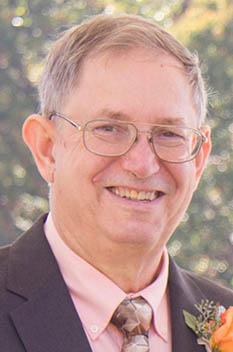Work after the snow
Published 8:09 am Monday, February 8, 2016

- Tommy Wright Delegate
After last week’s rare snow day, the Virginia General Assembly got back to work at noon on Jan. 28. Although most of Richmond’s streets were still clogged with snow early in the week, lawmakers returned to Capitol Square to do the work of considering legislation.
There is a lot of legislation under consideration this year. The 100 delegates and 40 senators filed 2,168 bills this session, up 10 percent over the totals considered during the 2012 and 2014 sessions. Based on the performance in previous years, somewhere around 800 of those bills will ultimately be enacted.
Why, you might ask, do the majority of bills not become law? Well, there are a variety of reasons why bills do not ultimately win approval. Some bills are very similar to others being filed, which leads to them failing in favor of a similar bill.
Others are determined to require more study, and are carried over to the next session. There will be some bills that have a financial impact and the state just doesn’t have the money to do what the bill requires. And of course, some bills just don’t have the support necessary to be approved.
Substantial support is necessary for any bill to win approval. Before most bills become law, they must first be approved by a House subcommittee, then by a House committee, and finally by a majority vote of the entire House of Delegates.
After it passes through that gauntlet, a bill must be approved by a Senate committee and then by a majority of senators. If it makes it through all that, it then must win the signature of the governor to become law.
Many constituents have reached out to me about the Attorney General’s unilateral decision to void Virginia’s concealed-carry reciprocity agreements with 25 states.
His actions endangered the Second Amendment rights of hundreds of thousands of Virginians — and they are decidedly not happy about it. Late last week, an agreement was reached that would restore those rights.
Gov. Terry McAuliffe reversed his earlier stand and agreed to sign legislation to reinstate the reciprocity agreements. Of course, that legislation has yet to reach his desk, as it is still very early in the session.
As chairman of the Firearms Subcommittee, I will do everything in my power to ensure bills that restore the rights of law-abiding gun owners move through the legislative process as quickly as possible.
Despite Richmond’s snow-clogged streets, we had lots of visitors from home last week. A large contingent from Southside Virginia Community College, including President Al Roberts and Vice President for Workforce Development Keith Harkins made their way to the Capitol. They were accompanied by Jeff Edwards, CEO of the Southside Electric Cooperative and AlanSharrett, VP of public & member relations at Southside Electric; David Lipscomb VP of member and energy services of the Mecklenburg Electric Cooperative; in addition to Brian Mosier and Andrew Vehorn with Virginia, Maryland and Delaware Association of Electric Cooperative. Liz Hamlett, Lunenburg commissioner of revenue from Victoria and Megan Caton from Amelia also stopped by our office.
The Farm Bureau of Virginia was out in force on Thursday.
We had Irving and Linda Mautreau from Chase City, Roger and Evelyn Hatcher from Cumberland, George Rice, Benjamin Wittman, Grayson Mullins from Crewe, Allen Walker from Blackstone, and Jeremy Moyer rom Amelia, and Rob French from Cumberland all stop by for a visit.
If you plan on visiting Capitol Square between now and March 12, please remember to stop by our offices in room 811 of the General Assembly Building.
Thank you for taking the time to read this week’s column. I’ll be back next week with more news from Richmond.
Del. Tommy Wright represents Lunenburg County in the House and is a resident of the county. He can be contacted at deltwright@house.virginia.gov.


